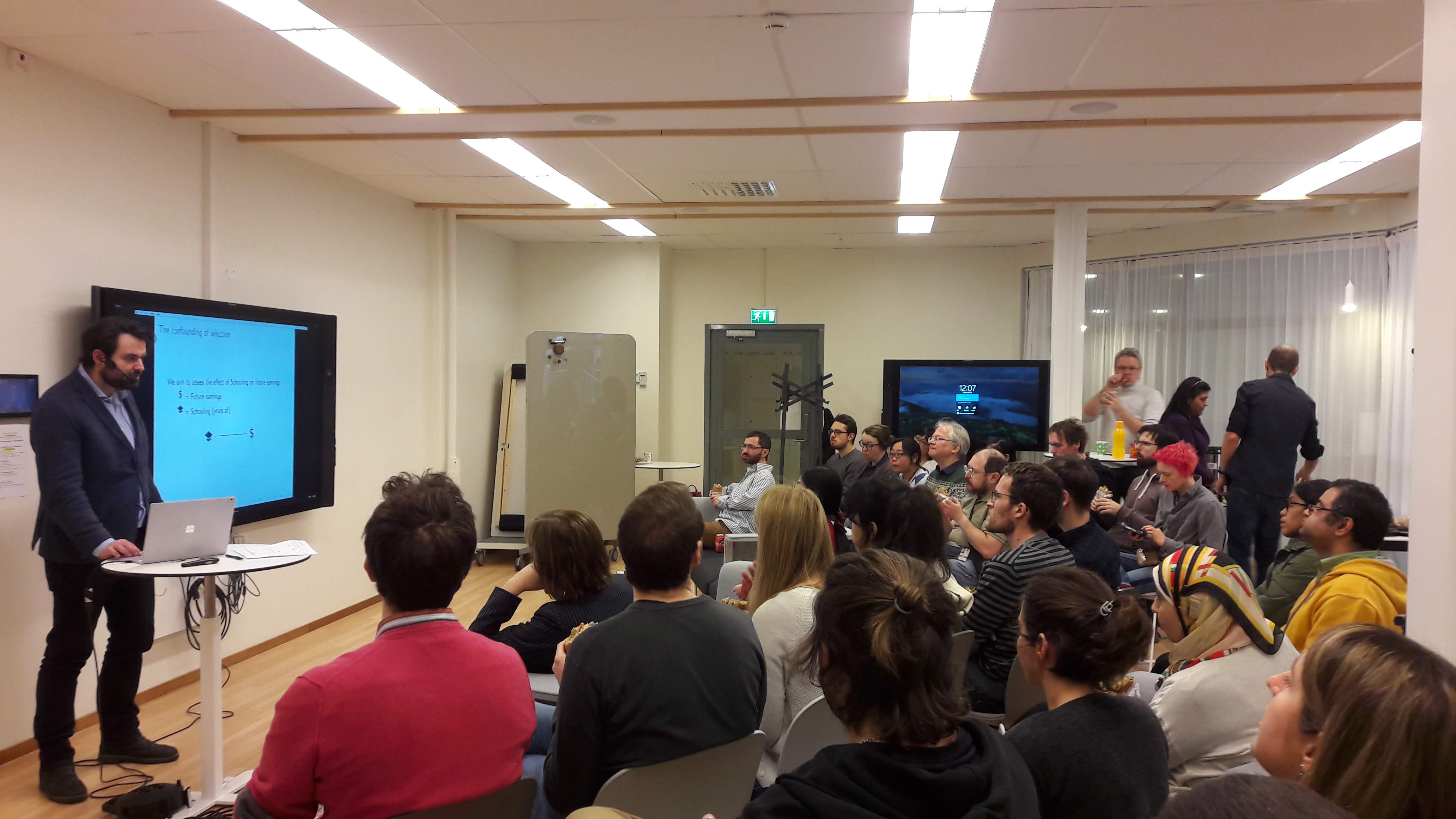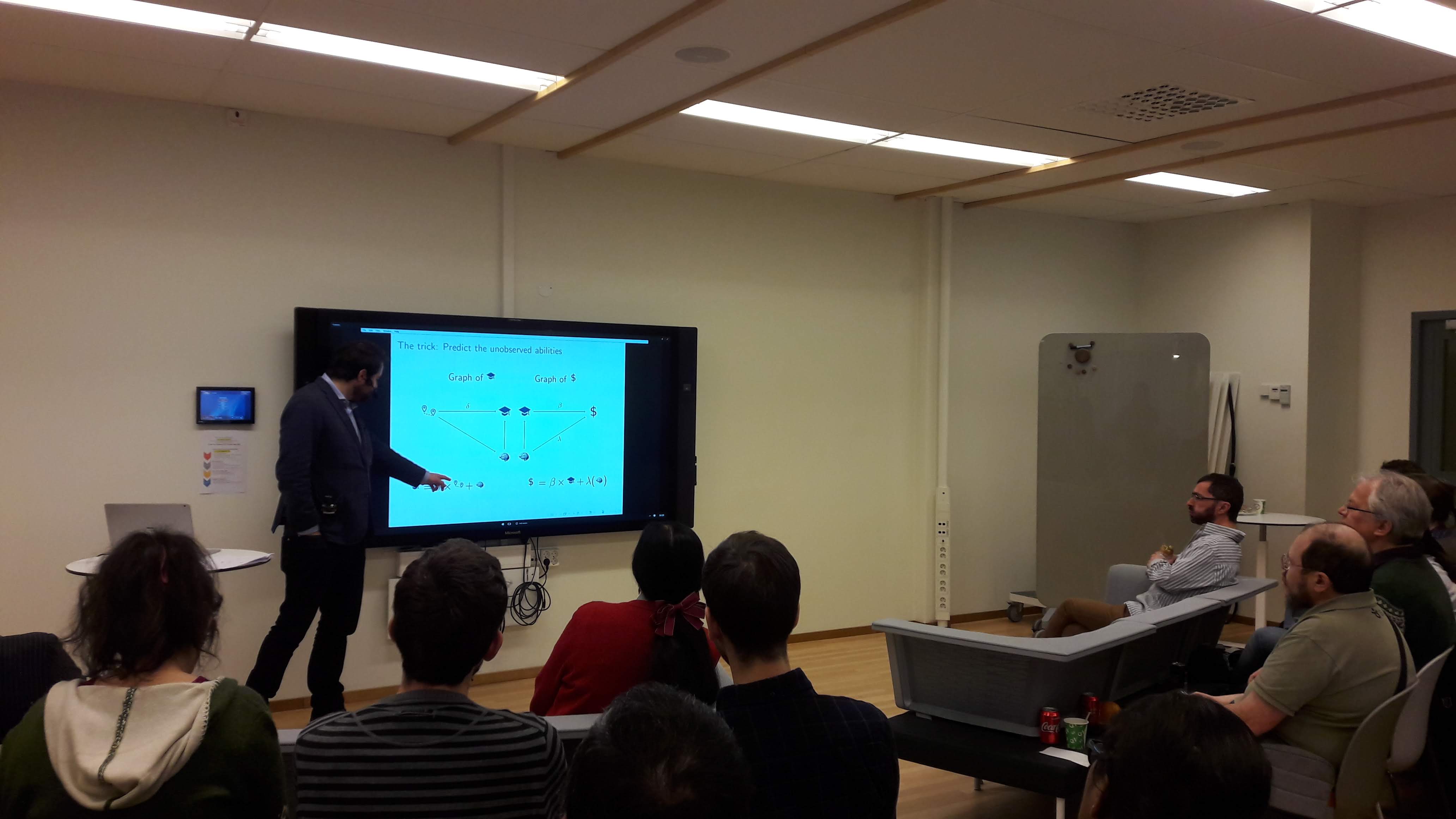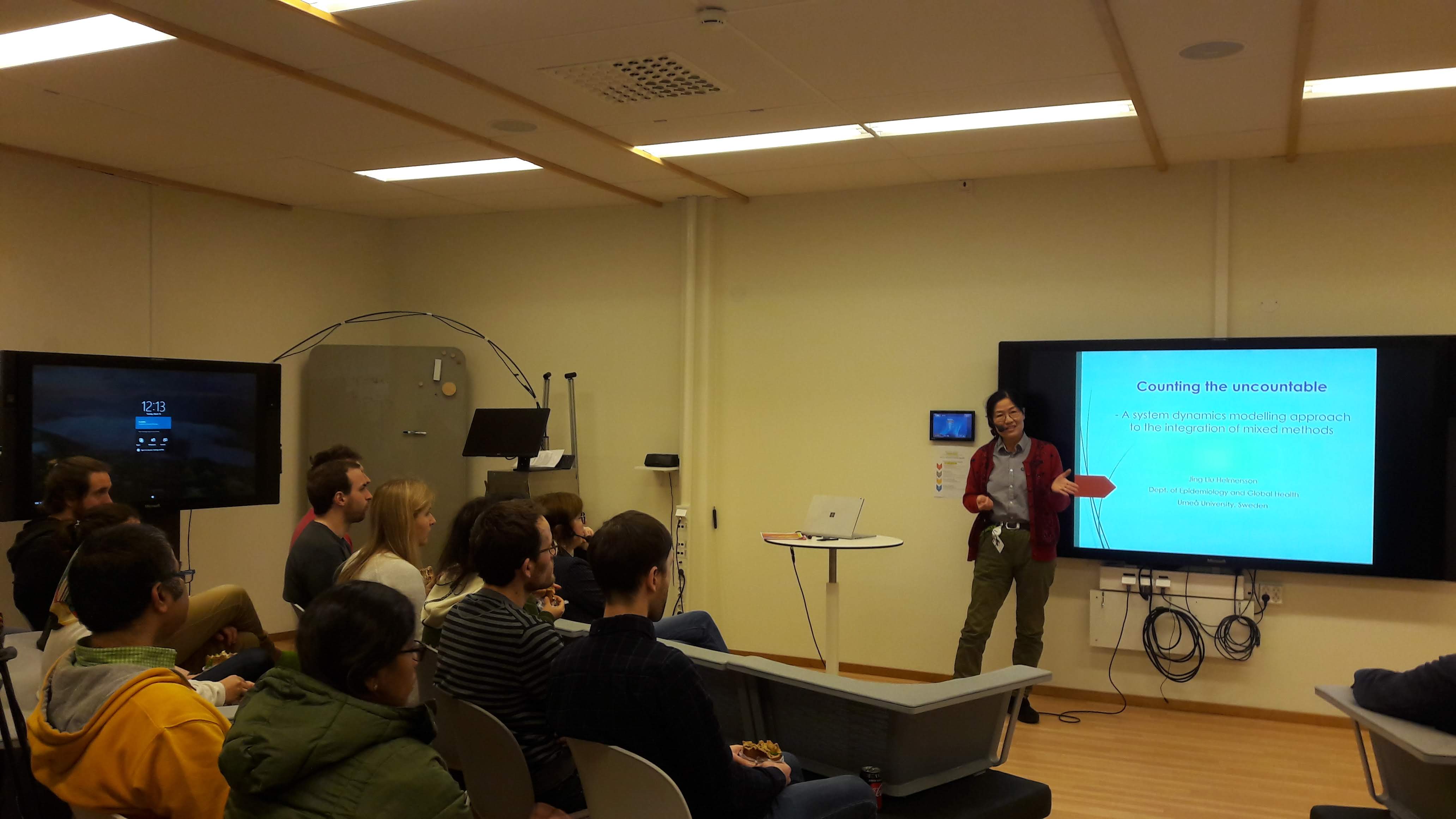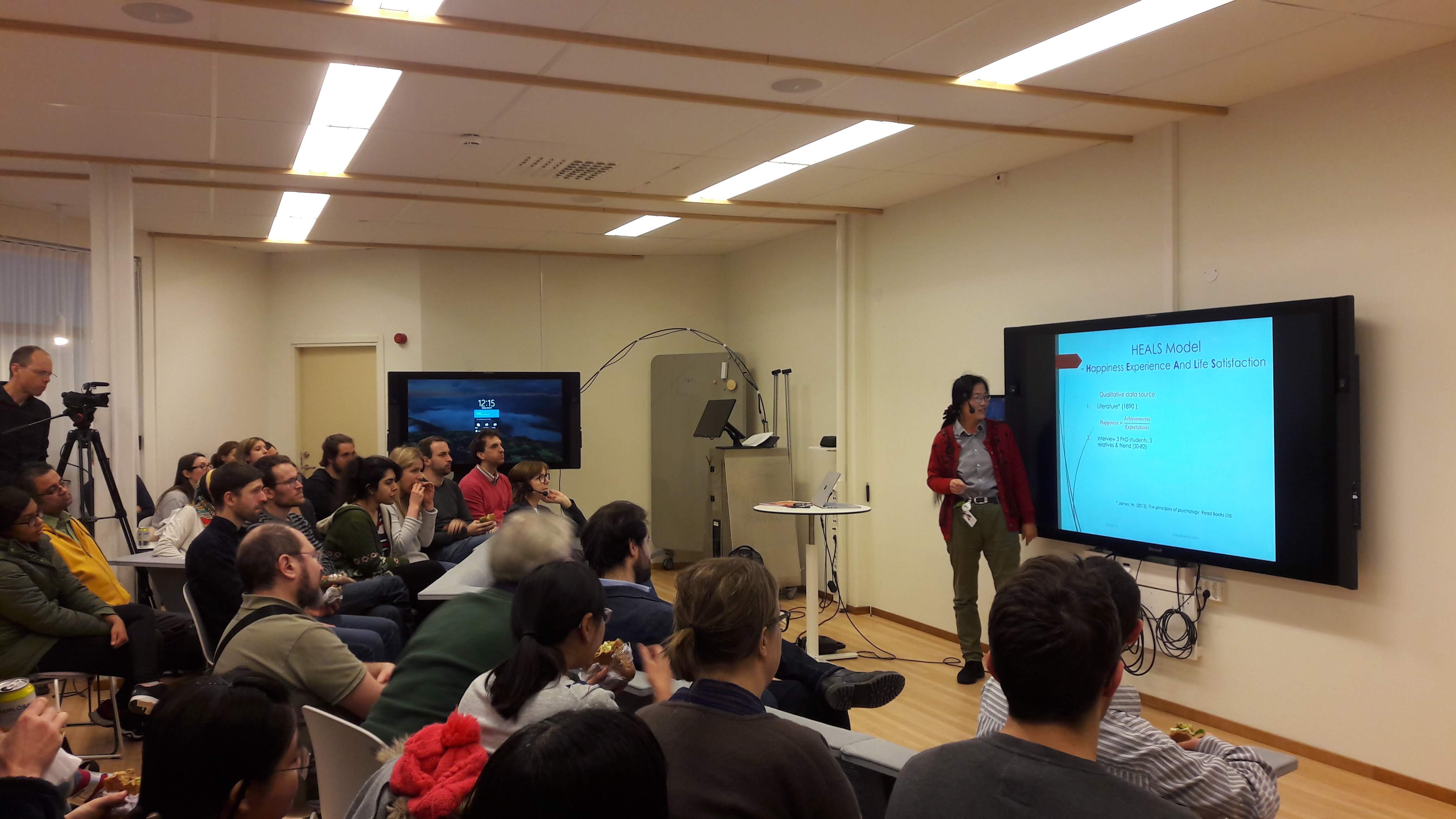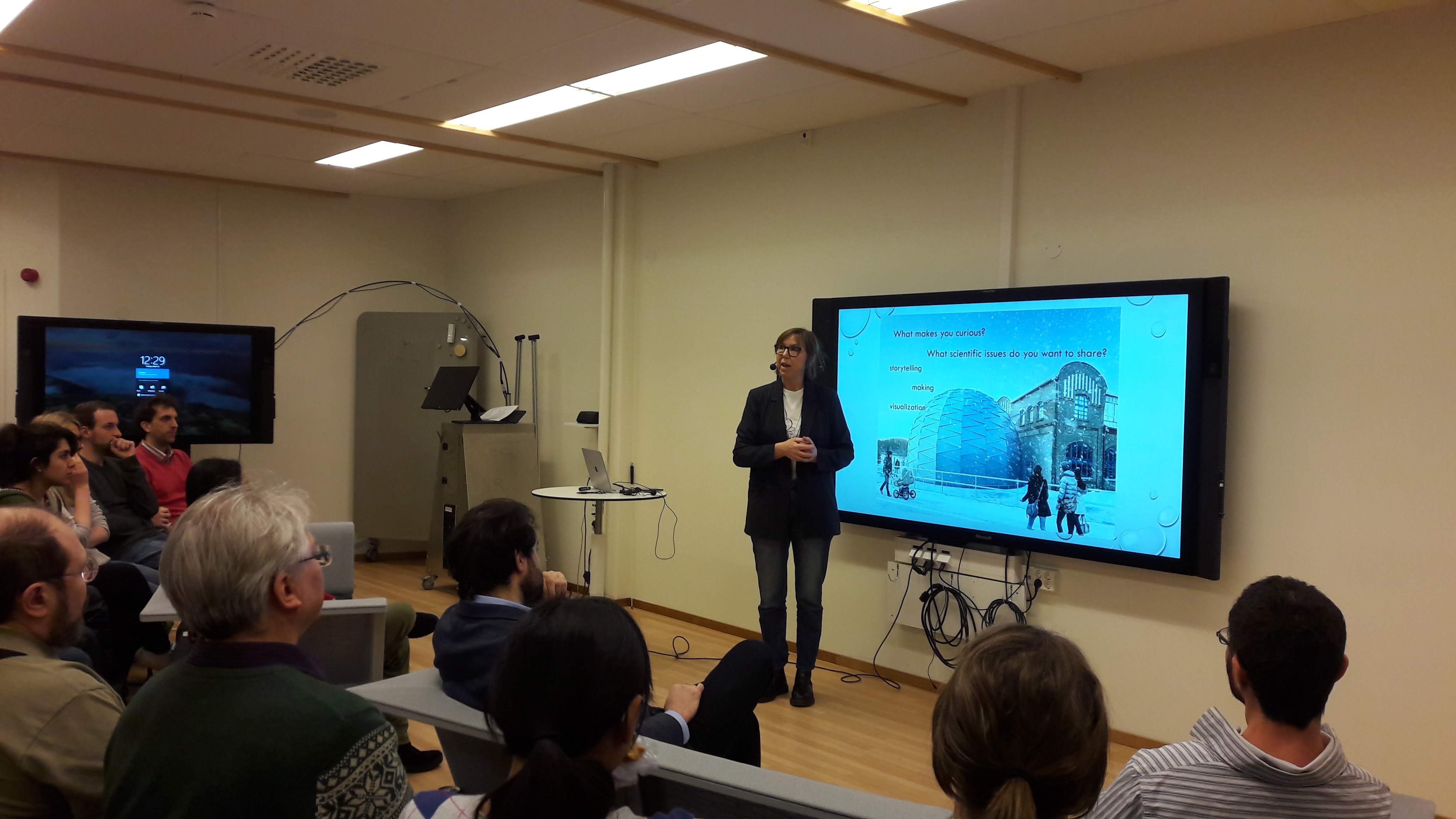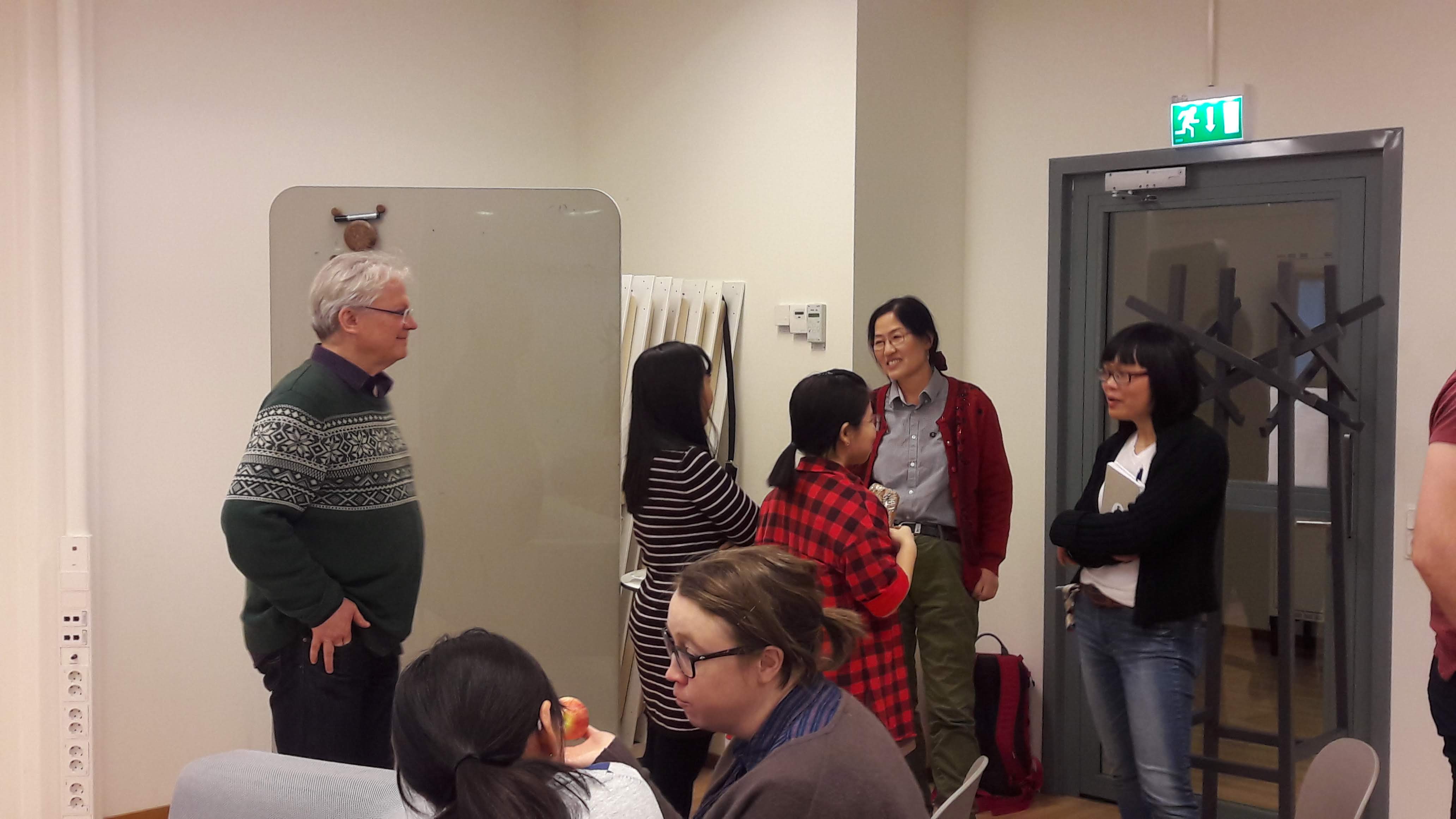Life satisfaction, science communication, and unobserved variables
March 19, 2019
First Pitcher: Raoul Theler, Visiting researcher at Umeå School of Business, Economics and Statistics (USBE)
Title: How to deal with confounding unobserved variables in data
The independence between instruments and individual unobserved characteristics is a traditional condition, yet difficult to be justified in practice when assessing the causal effects with non-experimental data. We propose a solution to evaluate the causal effects when the instruments are correlated with the unobserved heterogeneity in structural models.
Second Pitcher: Jing Helmersson, Senior research assistant at the Department of Epidemiology and Global Health, Umea University
Title: Counting the uncountable – A system dynamics modelling approach to the generalization of qualitative study findings and the integration of mixed methods
More and more qualitative studies are being conducted in public health and social science to complement quantitative studies and to obtain in-depth knowledge about people’s experience and attitudes. However, quantitative studies still dominate as a basis for decision-making, partly because it is unclear how to generalize qualitative research results and project them into the future to support decision making. Here we show that system dynamics modelling (SDM) may be the approach to doing this. Using life satisfaction as an example, we started from qualitative study findings to build a system dynamics model that generated quantitative output. Through model validation of quantitative data, the qualitative research result was generalized and integrated coherently with those quantitative studies. In this example, the results show that domain achievement and life satisfaction enforce each other through a feedback loop. To promoting life satisfaction, it may be more effective to reduce expectation than to increase achievements.
Third Pitcher: Madelen Bodin, Director of science centre ”Umevatoriet/Sliperiet” and researcher at Department of Science and Mathematics Education, Umea University
Title: Science as a source of curiosity
A new arena for communicating and learning science and technology is evolving when former university units Umevatoriet and Sliperiet are merging into a new science centre aiming at stimulating citizens’ curiosity about science, making people want to learn more. The centre focuses on making research in science and technology accessible to everybody through immersive and interactive experiences. We aim at offering a personal experience of science and technology by using topics and pedagogical and interactive tools that actually talk to people’s curiosity. We seek collaborators within all disciplines in order to fulfil these goals.


